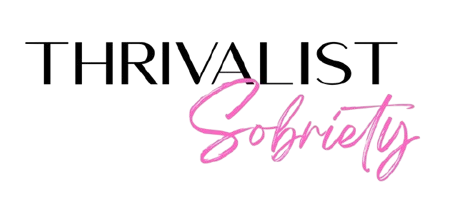
Getting the most out of Febfast
This information will help you to suck the juice out of taking a break from drinking for the month of Feb, to maximise this time to improve your relationship with alcohol (and yourself!) rather than simply pushing pause and going back to drinking in the same way come the end of the month.
1. Find your tribe – there are literally 1000’s of sober communities to connect with
The first thing I want you to know if you’re taking a month off drinking because you’re quietly concerned about your relationship with alcohol, is that YOU ARE NOT ALONE.
I remember feeling like I was the only person on the planet struggling with my drinking, because everyone else seemed to have their drinking under control. But the truth is that MANY people don’t. It’s just that no one talks about it.
One in four Australian women drink excessively, at high-risk levels. This isn’t obvious though, because most grey-area drinking women fly under the radar. They have no outward signs of a drinking problem, and, in our binge-drinking culture, their drinking doesn’t look out of place. And, many women struggling with their drinking tend to do most of their problem-drinking in private.
Keeping your struggles with alcohol private fuels the problem. So I encourage you, as you embark on Febfast, to share what you’re going through with other people and allow yourself to be supported. Join a community like Thrivalist (our Basic membership is free) because something magical happens when you open up and realise you’re not alone. When you realise there are thousands of other women out there, just like you, who are going through the same struggle, and who also thought they were alone. If you’re not ready to join a membership, at least open up to someone in your life that you trust.
You don’t have to do this alone. You’re worthy of support, and support makes behaviour change so much easier.
2. Use this time to learn about your relationship with alcohol
There’s nothing quite like taking a break from drinking to figure out when, where and why you’ve been relying on it.
Use this month to get really curious about your drinking habit by analysing what’s going on every time a craving to drink pops up. When you feel a craving coming on, curiosity looks like saying some or all of the following to yourself:
Interesting. I’m craving a drink. I wonder why? Do I associate alcohol with this time of the day? With this activity? With this person? Am I trying to avoid, escape or numb an emotion? If so, what is it? Next month, if I’m drinking again, do I want to drink in situations like this? Or is this a situation I’d like to work on becoming more comfortable in without a drink? How could I support myself without a drink in this situation? What do I really need?
Think through the answers to these questions, or better yet, journal about them. Each time you do this, you’ll gain valuable insight into how and why you usually use alcohol, and you’ll get to assess whether you’re happy with this use or not.
If you do plan to reintroduce alcohol at the end of Febfast, you’ll be able to use this information to decide what kind of drinker you do (and more importantly, don’t) want to be moving forward. And you’ll have an overall awareness of your triggers and vulnerabilities which is helpful information when it comes to putting strategies in place to support yourself.
3. Start working on addressing your root causes
You may already know, or have an idea of, the deeper reasons why you drink. I was chatting with a friend yesterday who is well aware that loneliness is the root cause of her overdrinking which she does at night on her own at home. As I said to her, I can give you all the fancy craving tools and behaviour change strategies in the book, but if you don’t work on addressing your loneliness, none of that is likely to give you sustained success in cutting down or going alcohol free.
The first step here is to identify what your root causes, or the deeper drivers of your overdrinking, are. Stress, trauma, loneliness, boredom, insecurity, poor mental health, dissatisfaction with your career, or being in an unhappy marriage, are all examples of root causes. What are yours? And how can you start addressing those things now so that you give yourself the best chance of developing a healthier relationship with alcohol? Because alcohol can’t fix root causes. It only provides a sense of temporary relief from them, but they’re still there when you wake up in the morning. And by drinking, you haven’t done a damn thing to address them. In fact, you’ve often added to your problems, rather than gained any genuine relief from them.
4. Know that change is possible but it takes work and time
It’s human nature to want a quick fix. But when it comes to changing an unhealthy relationship with alcohol, the truth is that it isn’t easy. And it takes time. Often longer than 28 days.
Is it possible to develop a better relationship with alcohol? Hell, yes! We help women do this every day. But these women put in the work. They put in the effort. They give their goal the time, dedication and commitment that it takes for them to create sustained behaviour change.
5. Decide on your goal and start taking action
Use Febfast to decide what your goal is with alcohol moving forward. Do you feel like you need longer than 28 days off and want to commit to an extended break? Or do you want to reintroduce alcohol at the end of Febfast but drink in a more mindful and moderate way than you were drinking before?
Whatever your goal is, commit to it. Make a rock-solid decision to commit to that goal, and start taking steps and actions to support yourself in achieving it. Our Invested and All-In memberships give you everything you need to achieve your goal. Joining our community, doing our courses and getting coached along the way will no doubt accelerate your results. But if you’re not ready for a Thrivalist membership, simply pick one to three small steps you can take each week to inch you closer to your goal.
6. If you don’t make it through the month, you’re not a failure
If you drink before Febfast is over, all is not lost! It doesn’t mean that you’re a failure, or that you’re destined never to meet your alcohol-related goals. And you don’t need to indulge in black and white thinking that justifies throwing in the towel and drinking for the rest of the month just because you drank on one occasion.
Look at the drinking occasion as an opportunity to learn more about yourself and your drinking habit.
What led up to the drinking? What happened? What permission-giving thoughts did you buy into? How could you have supported yourself differently to have achieved a different outcome?
The crucial thing after breaking Febfast (or drinking any time when you’ve committed not to) is to be compassionately curious about what happened, and not allow yourself to make the drinking mean something terrible about you. You’re awesome and you’re completely worthy exactly as you are right now and your drinking or not drinking doesn’t touch that!
Each time you drink when you’ve committed not to, you learn valuable information that will help you achieve your goal. Past ‘failure’ is by no means an indicator of future failure. In fact, it’s often an indicator of future success.
7. Don’t stop until you’ve achieved your goal
There is no right or wrong way to change your relationship with alcohol. Each person will have their own unique set of tools, practices, strategies and supports that work for them. So, if you try something and it doesn’t work, try something else. Keep trying things, keep what works, and disregard the rest.
We have women who join Thrivalist after having done other alcohol-free challenges and courses, reading books, listening to podcasts and trying many things without having yet achieved their goal. Then finally, something clicks. Was all that previous work wasted? Absolutely not. They picked up little gems all along the way that contributed to the sustained success they now enjoy.
If at first you don’t succeed, don’t stop until you do.
If you’d like us to hold your hand through Febfast, we’re running a 28-day AF challenge starting on 1 February. Join our Invested or All-in Membership to gain access. You won’t regret it.

Post a comment